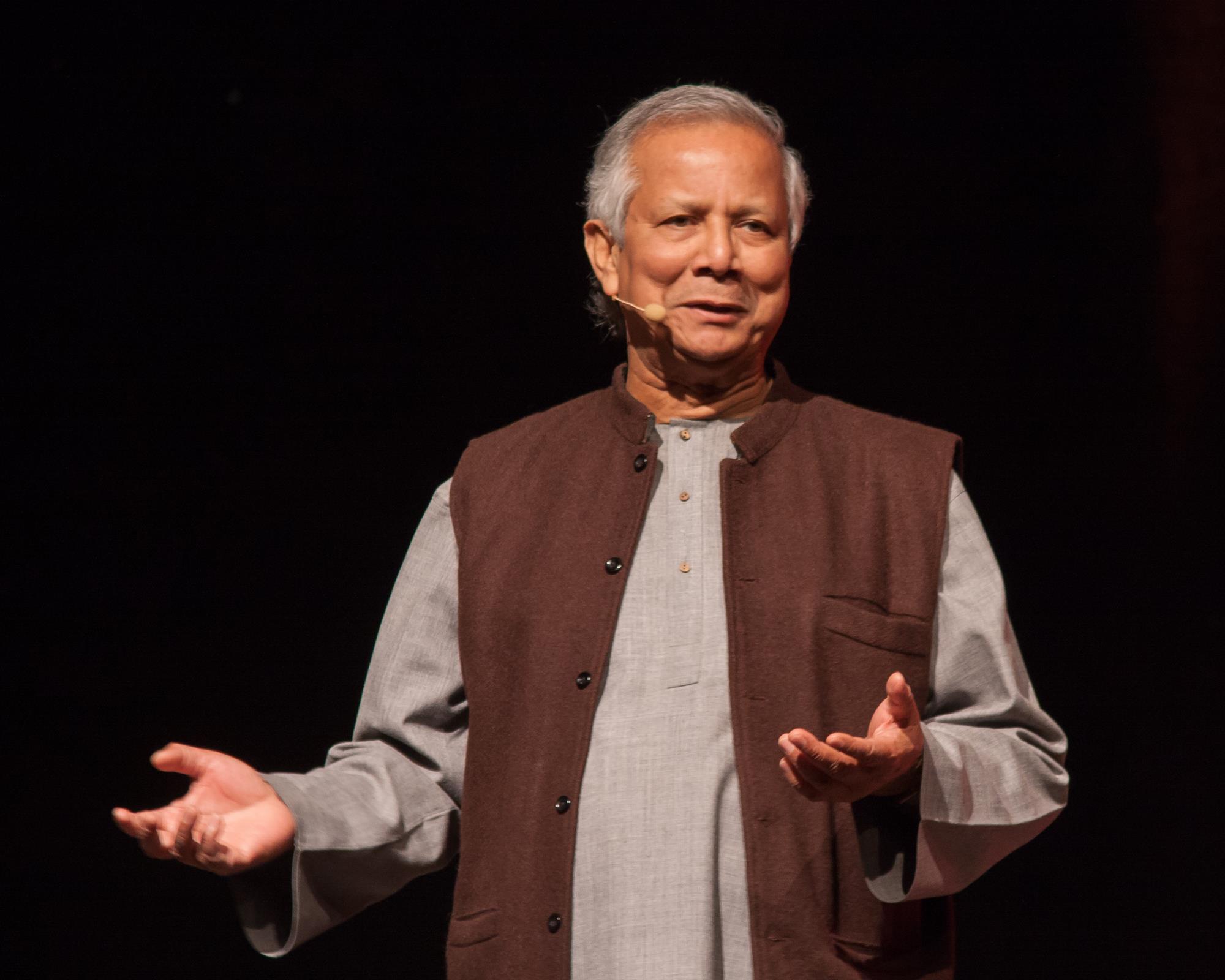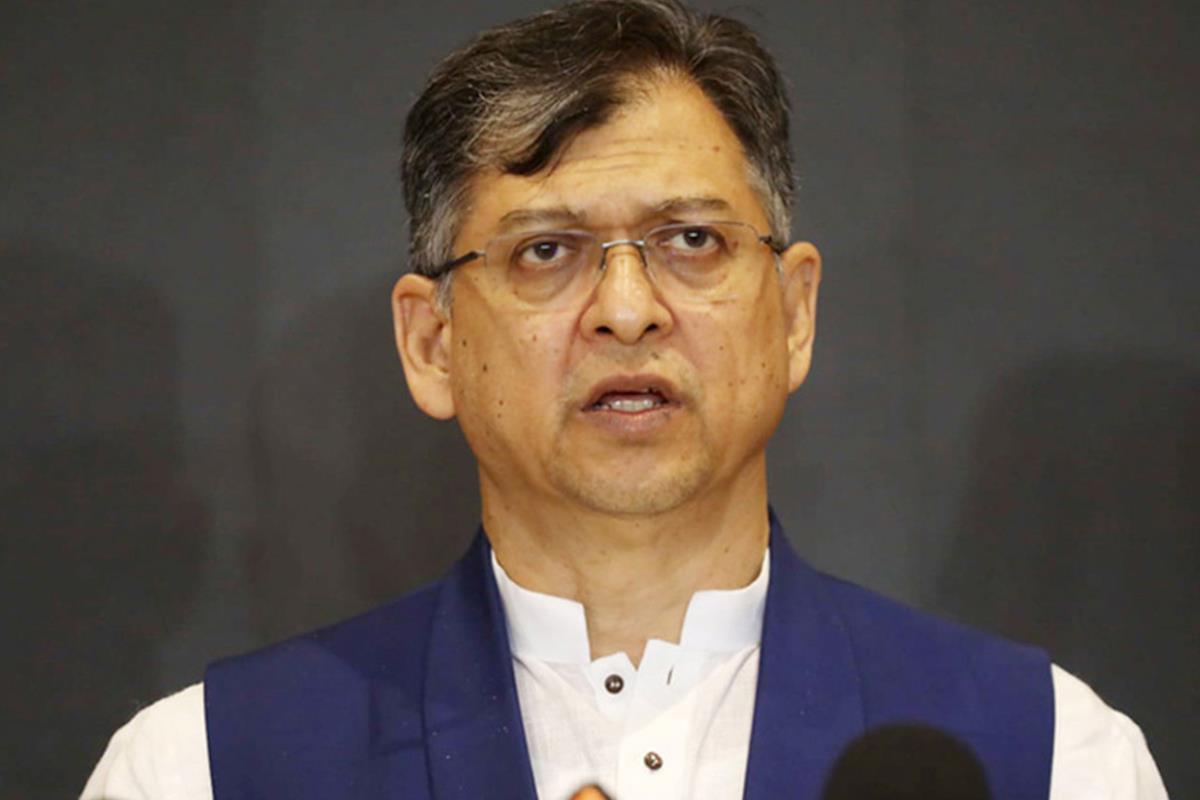
Salahuddin Ahmed The Surprise Face Of Bangladesh's Calm New Order
Grandstanding, rhetoric, slogans and pointed barbs often eclipse substance. A well-timed jibe towards opponents or a fiery speech can dominate headlines for days, while reasoned argument usually drowns beneath the din.
That is why Salahuddin Ahmed's rise stands out. In a political culture addicted to confrontation, his calm, lawyerly cadence feels almost alien and yet it is resonating.
The South Asian nation of 180 million is still reeling from the seismic political shif of July 2024, in which the autocratic regime of Sheikh Hasina crumbled under a student-led, common-people-powered uprising punctuated by a military takeover.
From then, Ahmed, a member of the Bangladesh Nationalist Party's (BNP) central committee, has quietly become one of the most talked-about political figures in the country.
Part of his popular appeal has been aesthetic. With his sharp attire–his signature“Salahuddin vest,” a sleeveless hybrid between the Nehru jacket and a formal blazer–he projects a polish rare in Bangladesh's raucous political arena.
But the attention he commands goes far beyond style. His strength, advocates say, lies in his clarity: an ability to distill complex political and legal issues into precise, accessible language.
That skill earned him a seat at the Consensus Commission–the reform body formed under the interim government after the ouster of Sheikh Hasina's long-ruling administration last year–on behalf of BNP.
The commission's mandate is ambitious –to forge agreement among the country's major political factions and design safeguards against future authoritarian drift. For the BNP, long dogged by its own history of internal chaos, Ahmed appeared as the most coherent candidate to present the party's stance.
Latest stories
The new contagion of nuclear escalation

Yunus leading a quiet Islamist coup in Bangladesh

Anduril drones won't close US Air Force's China gap
Yet his re-emergence reads almost like political fiction when viewed against the past decade of his life. Under Hasina's 15-year rule, sustained by disputed elections and a systematic crackdown on dissent, Ahmed became one of the regime's most notable casualties.
On March 10, 2015, he vanished from his home in Uttara, a neighborhood in the capital of Dhaka. Witnesses said men claiming to be law enforcement officers took him away. For more than two months, there was silence.
Then, without explanation, he resurfaced across the border in Shillong, India, where he was detained under India's Foreigners Act. That disappearance, once the symbol of his erasure, has probably now become the foundation of his political renewal.
The Commission on Enforced Disappearances, established by Bangladesh's interim administration to investigate state-led abductions under Hasina's rule, later confirmed Ahmed's case as a clear instance of enforced disappearance and cross-border rendition.
On June 3, 2025, Ahmed took the step of filing a case before Bangladesh's International Crimes Tribunal, naming seven individuals–including the former prime minister Hasina herself–as responsible for his abduction and detention.
Yet, those nine years he spent in India before returning to Bangladesh in August 2024 remain the most contentious chapter of his story.
In a country where suspicion of India runs deep, his prolonged stay across the border has inevitably fueled speculation. The most corrosive of these claims–circulated by both political rivals and partisan commentators–is that Ahmed was, or remains, an“agent” of India's intelligence apparatus, the Research and Analysis Wing (RAW).
Such narratives are not surprising. India looms large in Bangladesh's political imagination. The two countries share the world's fourth-longest border, and India's outsize influence–often perceived as patronizing or self-serving–has long generated resentment.
That resentment intensified during Hasina's tenure, when New Delhi's quiet but consistent support for her increasingly autocratic government left many Bangladeshis convinced that India valued stability over democracy next door.
Against that backdrop, the optics of a senior BNP politician spending nearly a decade in India–regardless of whether in a detention cell or a rented flat–were bound to raise eyebrows.
His return to Bangladesh after the 2024 uprising, followed by his swift rise to prominence within the main opposition, has provided ample fodder for rumor and innuendo.
His critics, both within the BNP and from rival parties like Jamaat-e-Islami and the National Citizens Party (NCP), have seized on the narrative. They portray his time in India as evidence of complicity, his composure as proof of foreign grooming.
Meanwhile, YouTube pundits and social media provocateurs keep the conspiracy mill running, rarely pausing to offer verifiable facts.
Yet through all the noise, Ahmed has remained composed. He has followed the formal path–lodging his complaint with the Commission on Enforced Disappearances, filing his case before the International Crimes Tribunal, and representing his party's interests inside the Consensus Commission, where the country's political future is being negotiated.

Sign up for one of our free newsletters
-
The Daily Report
Start your day right with Asia Times' top stories
AT Weekly Report
A weekly roundup of Asia Times' most-read stories
In public, he has become the BNP's de facto spokesperson, a face of calm rationality amid Bangladesh's typically feverish political theater.
Sensing both the public fascination and the freshness of his tone, the mainstream media has latched onto him with enthusiasm. Political observers say Ahmed's rise rests on two defining traits: the analytical discipline of a trained legal mind and an oratorical style that prioritizes reason over rhetoric.
His speeches are tightly structured and free of the emotional flourishes that dominate Bangladeshi political discourse. Instead of sloganeering, he offers syllogisms; instead of fury, he delivers formality.
That controlled precision, almost clinical at times, has become his hallmark, injecting into the BNP a sense of coherence and discipline that it has long lacked.
Ahmed's ascent, then, is probably more than the story of one man's political rehabilitation. It is also a reflection of the nation's changing political mood.
As Bangladesh possibly heads toward a general election in February 2026, the old tactics of confrontation and street protest no longer seem viable or attractive.
The BNP, bruised but recalibrating, appears to be searching for a different vocabulary of opposition–one rooted in reason and restraint.. And in that new vocabulary, Ahmed has, almost unintentionally, become the voice that best articulates it.
Abu Jakir is a journalist based in Dhaka.
Sign up here to comment on Asia Times stories Or Sign in to an existing accounThank you for registering!
An account was already registered with this email. Please check your inbox for an authentication link.
-
Click to share on X (Opens in new window)
Click to share on LinkedIn (Opens in new window)
LinkedI
Click to share on Facebook (Opens in new window)
Faceboo
Click to share on WhatsApp (Opens in new window)
WhatsAp
Click to share on Reddit (Opens in new window)
Reddi
Click to email a link to a friend (Opens in new window)
Emai
Click to print (Opens in new window)
Prin

Legal Disclaimer:
MENAFN provides the
information “as is” without warranty of any kind. We do not accept
any responsibility or liability for the accuracy, content, images,
videos, licenses, completeness, legality, or reliability of the information
contained in this article. If you have any complaints or copyright
issues related to this article, kindly contact the provider above.


















Comments
No comment